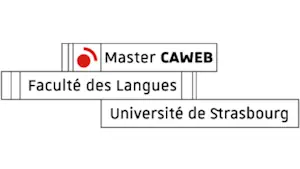Translating in times of Covid – How to benefit from social distancing


There is one word that triggers various emotions in all of us, and that we get quite tired of hearing: Covid 19. For the past two years, our lives have been turned upside down and a few words have become the norm: pandemic, lockdown, protective masks, quarantine, social distancing… While the world is slowly trying to recover after such a big hit, translators have already gotten used to their new working conditions. We decided to ask translators and interpreters to share their state of mind, feelings, fears as well as advice for future translators. Meet Babenko Olesya and Latypov Niyaz who graciously agreed to share their experience with us.
Q: What were your first feelings after the announcement of the pandemic outbreak? Were you worried about your job?
Latypov Niyaz: For sure I worked during the most tense period of the Covid 19 pandemic. That was the period of offline classes so in my commitment as a teacher I delivered some lectures and classes. I also did some written translation, but there were only a few projects. As for conference interpreting, it actually gained momentum, but only back in July, I would say about 4 months after the announcement of the pandemic.
Q: As translators, can you think of any benefit you gained from the pandemic outbreak?
Babenko Olesya: It keeps us energetic
Latypov Niyaz: I don’t think there are any benefits, but there are some new opportunities. I would say that Covid-19 pandemic gave a chance to the development of different platforms for the remote conference interpretation, Zoom, and many other platforms. There are some colleagues, in Moscow and Saint Petersburg, that we’re able to work with major companies and they are still working quite intensely.
Q: Did you develop any new skills during the lockdown and Covid-19 in general?
Babenko Olesya: I was busy fighting against the virus and developing new skills at the same time. Getting tuned with conference platforms and remote teaching and interpreting in general, acquiring new ways of teaching, and doubling the number of my presentations.
Latypov Niyaz: I can’t say I developed any new skills during the lockdown period. I just got used to working online.
Q: Are you expecting any changes in the world of translation in the post-Covid world?
Babenko Olesya: Translation will never catch covid – that makes me happy. Still, there are changes coming, it’s tangible: we are getting more careful in the long run. As for translation, we can celebrate the fact that remote translation has become a thing and that it will stay that way!
Latypov Niyaz: Concerning online teaching practice, I’m not very happy about that, but we have what we have and we have to deal with it. As for conference interpretation, it facilitates many aspects and even enhances it. You can enjoy the comfort of your apartment and provide interpretation services to any location around the globe. Many conferences went online so there are still some opportunities and chances to work.
Q: What advice can you give to new translators in such a challenging moment?
Babenko Olesya: Translation is hard to approach, folks. The newcomers are stubborn in a good way and want to reach for the stars. Keep calm (a wise everyday piece of advice for translators!) and your sky will have no limits.
Latypov Niyaz: As for the advice to newcomers, whether translators or interpreters, I would say:
Never give up. Diversify your skills. Be agile, be flexible, be ready to adapt. Gain your competitive advantage, improve your skills and you will find a way anyway
Our world has never experienced something like coronavirus before. Everyone is trying his best to overcome the situation. For those of you who are interested in translation and interpretation, we highly recommend checking on the list of useful resources for knowledge upgrades. As our interviewees said, let’s try to keep calm and benefit from every moment.







